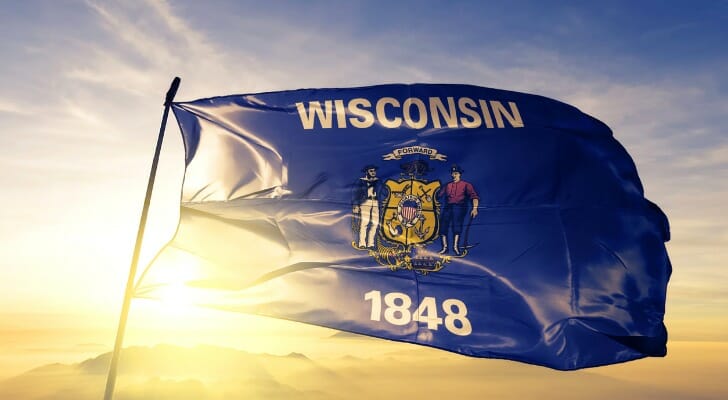On March 13, 2020, Wisconsin signed a coronavirus relief bill that ensured it could attain $2 million from the federal coronavirus stimulus package. The bill, which allocates $75 million toward a statewide coronavirus response, comes with several provisions benefiting employees and employers. As the state’s COVID-19 cases top 6,000, both individuals and small businesses can utilize various different relief programs if they’ve been economically impacted by the virus. These include unemployment benefits, small business coronavirus loans and numerous other perks. If you’re a Wisconsinite who has been affected by the coronavirus pandemic, take a closer look at your relief options both on the federal and state level.
Many Americans are also consulting their financial advisors to protect their finances against turbulent times. Find a financial advisor today.
Wisconsin Coronavirus Relief for Individuals
Unemployment Benefits
The federal coronavirus stimulus package requires states to offer an additional 13 weeks of unemployment compensation, pushing Wisconsin’s total number to 39 weeks. But on the state level, Wisconsin also offers individuals some leeway when filing for unemployment benefits. The state’s recently passed coronavirus relief bill will remove the one-week waiting period for any individuals who apply between March 12, 2020 and February 7, 2021.
Wifi Resources
A wide array of internet providers are extending free or discounted services to help those economically impacted by COVID-19. For instance, Bertram Internet offers 60 days of free internet access to disconnected households with K-12 children, college students and low-income residents. See a complete list of the internet providers here.
Food Resources
Second Harvest Food Bank of Southern Wisconsin has established a coronavirus response fund that helps with providing care boxes to coronavirus-impacted residents in need of food. Through its COVID-19 Rapid Response Fund, Feeding America Eastern Wisconsin is also asking for financial donations to help families searching for essential food resources. The organization has more than 600 partner food banks currently providing support throughout Wisconsin.
Wisconsin Coronavirus Relief for Small Businesses

Wisconsin Economic Development Small Business 20/20 Program
The Small Business 20/20 Program provides financial relief to small businesses and micro-enterprises adversely affected by COVID-19. But you’ll only qualify if your business has loans with a community development financial institution (CDFI).
The program grants funds to CDFIs, which in turn provide grants of up to $20,000 for businesses that are CDFI loan clients, according to the Wisconsin Economic Development Corporation. See more about its eligibility requirements here.
Federal Coronavirus Relief for Individuals
If you’re worried state relief alone won’t suffice, you can also utilize various forms of coronavirus crisis government help. While most benefits are need-based, the Coronavirus Aid, Relief, and Economic Security (CARES) Act also offers some financial relief regardless of whether you’ve been directly impacted by COVID-19. Among these are the coronavirus stimulus checks, and your adjusted gross income (AGI) determines how much you’re eligible to receive. For instance, individuals making $75,000 or less qualify for a maximum rebate of $1,200. Married couples with an AGI of $150,000 or less qualify for a flat $2,400, plus an additional $500 per dependent. Heads of household also qualify for a $1,200 check if they make $112,500 or less. But you’ll make less for every $100 you make above the AGI li mit. For individuals and couples, the maximum cut-off limits are $99,000 and $198,000. However, heads of households receive nothing if they make above $136,500.
The CARES Act also provides enhanced coronavirus unemployment benefits for those who lost their job due to COVID-19 reasons. The act provides all states 13 additional weeks in unemployment compensation, plus a federal boost of $600 per week for the benefits period. In addition, the package creates three key unemployment assistance programs, including Pandemic Unemployment Compensation (PUC), Pandemic Unemployment Assistance (PUA) and Pandemic Emergency Unemployment Compensation (PEUC).
The government’s coronavirus crisis help also consists of a tax deadline extension, paid coronavirus sick leave, student loan relief and coronavirus relief for rent and mortgage payments.
Federal Coronavirus Relief for Small Businesses

If you don’t meet the eligibility requirements within Wisconsin’s Small Business 20/20 Program, you may still qualify for funding from the federal government. The Small Business Administration’s Paycheck Protection Program, which recently received an additional $310 billion in funding, allows eligible businesses to borrow 2.5 times its average monthly payroll costs, or up to $10 million (excluding salaries of $100,000 or more). Economic Injury Disaster Loans (EIDLs) also served as another major source of relief for small businesses. The program offered emergency cash advances of $10,000 and loans of up to $2 million for eligible small businesses. Though both of these programs were temporarily suspended, they were recently given more funding and are again accepting applications.
The SBA Debt Relief program offers six months of automatic debt relief to those currently using SBA 7(a) loans, 504 loans and microloans. The program covers the principal, interest and fees of new 7(a) loans, 504 loans and micro loans issued before September 27, 2020, according to the Small Business Administration. Find out more about the program here.
Small businesses should consider 7(a) loans, express loans, Community Advantage loans, microloans and other forms of coronavirus relief for businesses.
The Bottom Line
Though Wisconsin’s coronavirus relief bill aims to enhance support for eligible recipients throughout the state, individuals and small businesses should also consider federal forms of relief. This ensures that you preserve your personal, or your business’s, finances in case any coronavirus-related quarantines, lay-offs or furloughs lead to financial loss.
Tips for Managing Your Finances During the Coronavirus Crisis
- If you’re looking for professional assistance with protecting your finances against a recession, a financial advisor may be right for you. Our free financial advisor matching tool pairs you with up to three advisors in your area. You’ll just need to complete a short questionnaire, which will in turn match you with your results.
- Several companies are currently providing relief to businesses and individuals affected by COVID-19, and Amazon and Apple are among them. See our full list of the companies helping coronavirus-impacted people.
- If you’re not sure how much you may receive in your stimulus check, our stimulus check calculator can help.
Photo credit: ©iStock.com/Oleksii Liskonih, ©iStock.com/Phynart Studio, ©iStock.com/1001slide
